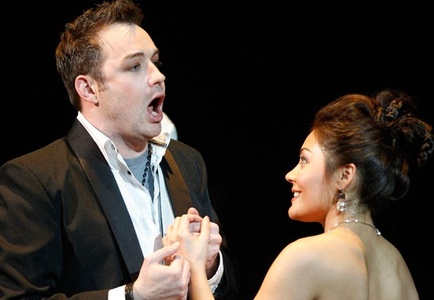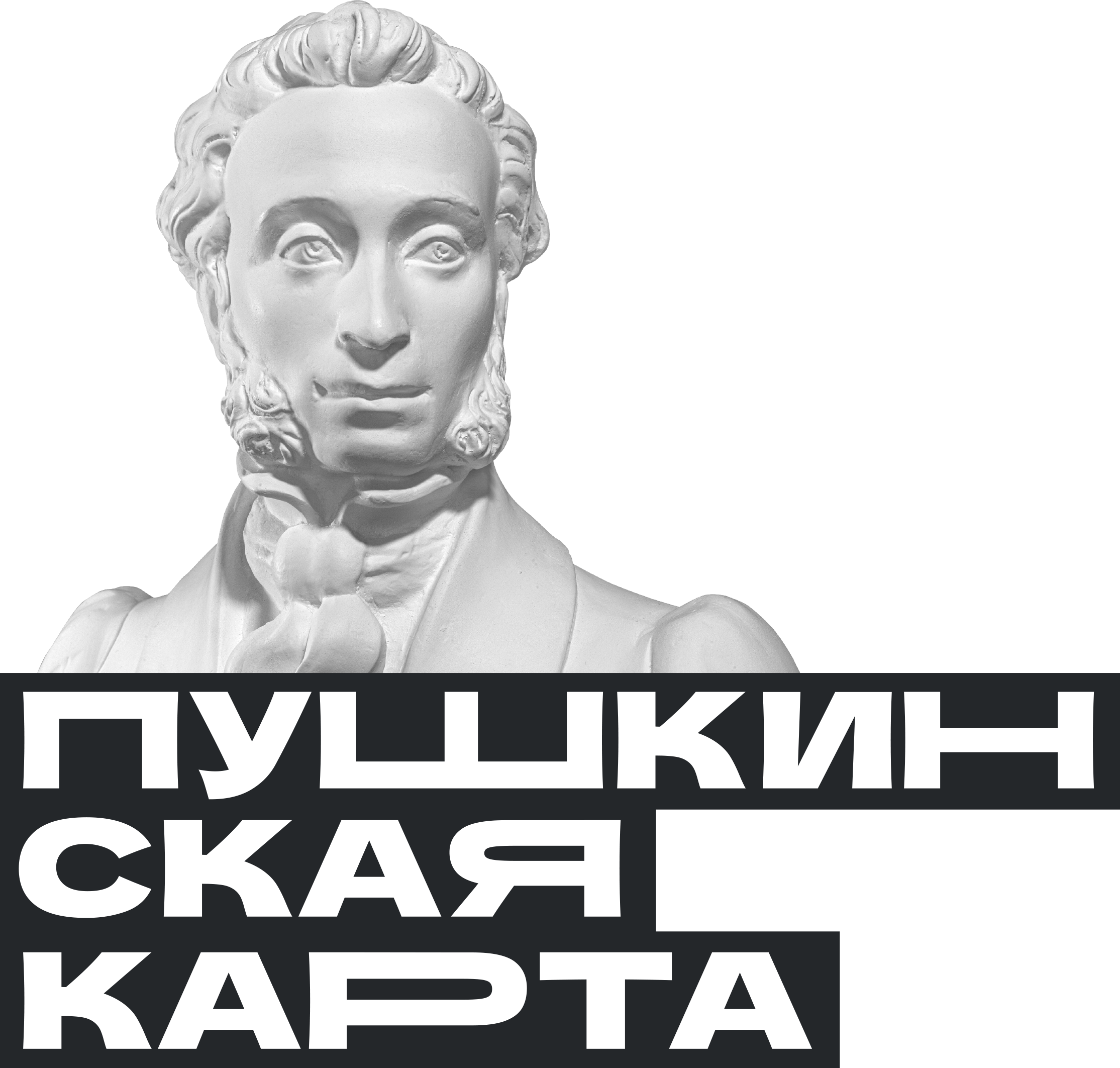Moscow Philharmonic Orchestra
Antonino Fogliani, conductor (Italy)
Sveshnikov State Academic Russian Choir
Stephen Costello (tenor)
Oleg Tsybulko (bass)
Alexandra Kadurina (mezzo-soprano)
Ailyn Perez (soprano, Mexico)
Simon Bailey (bass-baritone, UK)
Yaroslav Abaimov (tenor)
Program:
Mascagni
"L’amico Fritz", opera in concert performance

Subscription №1:
Opera Masterpieces
Moscow Philharmonic Orchestra
Throughout its history, the Moscow Philharmonic Orchestra has ranked among the best national orchestras and has been a worthy representative of Russian musical culture abroad.
The orchestra was founded in September 1951 under the Soviet Radio Committee and joined the Moscow Philharmonic Society in 1953. Its artistic image and performing style were built under the guidance of renowned Russian conductors. The ensemble's first Artistic Director and Principal Conductor was Samuil Samosud (1951–1957). In 1957–1959, the orchestra, led by Nathan Rachlin, was considered as one of the best in the USSR. In 1958, at the 1st International Tchaikovsky Competition, the orchestra, conducted by Kirill Kondrashin, accompanied a triumphant performance by Van Cliburn, and in 1960 it was the first Russian symphony orchestra to tour the USA.
Kirill Kondrashin led the Moscow Philharmonic Orchestra for 16 years (1960–1976). Those years were important milestones in the ensemble's history: the maestro conducted the premieres of Shostakovich's 4th and 13th Symphonies, his poem The Execution of Stepan Razin, Prokofiev's Cantata for the 20th Anniversary of the October Revolution, performed and recorded many Mahler symphonies. In 1973 the orchestra was awarded the title of Academic. Under Dmitry Kitaenko (1976–1990) the orchestra extended its 20th century repertoire, premiering works by Khrennikov, Denisov, Schnittke, Butsko, and Tishchenko. Messiaen's Turangalîla-Symphonie, Stravinsky's King of the Stars (Zvezdoliki) and Requiem Canticles were performed for the first time in the USSR. The ensemble was subsequently led by Vasily Sinaisky (1991–1996) and Mark Ermler (1996–1998).
The orchestra has collaborated with leading Russian and international conductors including André Cluytens, Igor Markevitch, Charles Munch, Zubin Mehta, George Enescu, Neeme Järvi, Mariss Jansons, Dzhansug Kakhidze, Kurt Mazur, Evgeny Svetlanov and composers Benjamin Britten, Igor Stravinsky, and Krzysztof Penderecki. It is with this orchestra that Sviatoslav Richter made his sole appearance as a conductor. Virtually all major soloists of the second half of the 20th century have appeared with the orchestra, including Isaac Stern, Yehudi Menuhin, Glenn Gould, Emil Gilels, David Oistrakh, Leonid Kogan, Daniil Shafran, Yakov Flier, Nikolai Petrov, Mstislav Rostropovich, Vladimir Krainev, Maurizio Pollini, Eliso Virsaladze, and Natalia Gutman. The orchestra has recorded over 350 LPs and CDs, many of which have received the highest international recording awards and are still in demand today.
A new stage in the history of the Moscow Philharmonic Orchestra began in 1998, when it was taken over by People's Artist of the USSR Yuri Simonov. Under his leadership, the ensemble has achieved tremendous success. Today the orchestra is one of the mainstays of Russian philharmonic life, frequently performing in cities across Russia (over the last ten years they have appeared in more than 40 cities) and successfully touring Great Britain, Germany, Spain, Japan, Hong Kong, China, and Korea.
In recent decades, the orchestra has played with such outstanding musicians as: Marc-André Hamelin, Valery Afanassiev, Yuri Bashmet, Boris Berezovsky, Yuja Wang, Maxim Vengerov, Stefan Vladar, Hibla Gerzmava, David Geringas, Barry Douglas, Lilya Zilberstein, Sumi Jo, Laura Kleikomb, Alexander Kniazev, Sergey Krylov, John Lill, Nikolai Lugansky, Konstantin Lifshitz, Oleg Maisenberg, Denis Matsuev, Ekaterina Mechetina, Viktoria Mullova, Daniel Pollak, Vadim Repin, Sergey Roldugin, Dmitry Sitkovetsky, Viktor Tretyakov; Conductors Luciano Acocella, Semyon Bychkov, Alexander Vedernikov, Michael Güttler, Alexander Dmitriev, Marco Zambelli, Thomas Sanderling, Alexander Lazarev, Andres Mustonen, Vasily Petrenko, Benjamin Pionnier,
Gintaras Rinkevičius, Alexander Sladkovsky, Leonard Slatkin, Saulius Sondeckis, Antonino Fogliani, Mariss Jansons and many others.
One of the orchestra's priorities is working with the new generation of musicians: as part of the Stars of the 21st Century series, the orchestra plays with gifted soloists entering the big stage and invites young performers to join its philharmonic subscription programmes. The orchestra is a regular participant of international and Russian master courses for young conductors by Yuri Simonov, organized by the Moscow Philharmonic society.
The activities of Maestro Simonov and the orchestra also aim at educating young listeners. The subscription series Tales with an Orchestra, taking place in Moscow and many Russian cities and featuring theatre and film stars, has become hugely popular. Guest stars have included Marina Alexandrova, Maria Aronova, Alyona Babenko, Valery Barinov, Sergei Bezrukov, Anna Bolshova, Olga Budina, Valery Garkalin, Sergei Garmash, Nonna Grishaeva, Ekaterina Guseva, Evgenia Dobrovolskaya, Mikhail Yefremov, Evgeny Knyazev, Avangard Leontiev, Pavel Lyubimtsev, Dmitry Nazarov, Alexander Oleshko, Irina Pegova, Yulia Peresild, Mikhail Porechenkov, Evgeniya Simonova, Grigory Siyatvinda, Daniil Spivakovsky, Yuri Stoyanov, Evgeny Stychkin, Victoria Tolstoganova, Mikhail Trukhin, Gennady Khazanov, Chulpan Khamatova, Sergey Shakurov. This project brought Maestro Simonov the Moscow Mayor's Arts Award in 2008, while in 2010, Yuri Simonov and the orchestra received the National Newspaper Musical Review Award in the Conductor and Orchestra category.
In recent years, the ensemble has presented several Moscow, Russian and world premieres of works by Andrei Eshpai, Boris Tishchenko, Krzysztof Penderecki, Philip Glass, Alexander Tchaikovsky, Sergei Slonimsky, Valentin Silvestrov, Eduard Artemyev, Gennady Gladkov, Sofia Gubaidulina, Alexei Rybnikov, Efrem Podgaits, Kuzma Bodrov and other composers.
Stephen Costello
As the Associated Press observes, Stephen Costello is “a prodigiously gifted singer whose voice makes an immediate impact.” The Philadelphia-born tenor quickly established a reputation as a “first-class talent” (Opera News) after coming to national attention in 2007, when, aged 26, he made his Metropolitan Opera debut on the company’s season-opening night. Two years later Costello won the prestigious Richard Tucker Award, and he has since appeared at many of the world’s most important opera houses and music festivals, including London’s Royal Opera House, Covent Garden; the Deutsche Oper Berlin; the Vienna State Opera; the Lyric Opera of Chicago; San Francisco Opera; Washington National Opera; and the Salzburg Festival. In 2010 he created the role of Greenhorn (Ishmael) in the Dallas Opera’s celebrated world-premiere production of Jake Heggie and Gene Scheer’s Moby-Dick, prompting Opera magazine to hail him as “a tenor of ineffable sensitivity” and “unfailing elegance in singing.” Costello returns to the Dallas Opera to launch the 2016-17 season, making his role debut as Lensky in the company’s season-opening production of Tchaikovsky’s Eugene Onegin, before reprising his account of Greenhorn in Moby-Dick. Fall also marks his debut with the Boston Symphony and Andris Nelsons, under whose leadership he joins Renée Fleming for concert performances of Strauss’s Der Rosenkavalier. In the New Year, he heads back to the Metropolitan Opera to make his house title role debut in Bartlett Sher’s hit staging of Gounod’s Roméo et Juliette, and revisit his portrayal of the Duke of Mantua in Michael Mayer’s Vegas setting of Verdi’s Rigoletto. In Europe, besides giving his signature account of Rodolfo in La bohème at Madrid’s Teatro Real, he makes his Paris Opera debut as Camille in Lehár’s Merry Widow. The tenor launched his past season with two fall productions at the Met, where he made his company role debut as the Duke in Mayer’s take on Rigoletto, and reprised his Lord Percy in Donizetti’s Anna Bolena. Other season highlights included several notable firsts: besides singing his first Des Grieux in Massenet’s Manon at Dallas Opera, and making house role debuts both as Verdi’s Duke at Madrid’s Teatro Real and Edgardo in a new production of Donizetti’s Lucia di Lammermoor at the Royal Opera House, he also made his Santa Fe Opera debut in the title role of Roméo et Juliette. At the Vienna State Opera this June, he sings Nemorino in a new staging of Donizetti’s L’elisir d’amore. Costello made his professional debut in 2005 with the Opera Orchestra of New York at Carnegie Hall. The following year brought his European debut, as Nemorino with Opéra National de Bordeaux, and his first appearances at the Dallas Opera and Fort Worth Opera, as Puccini’s Rodolfo. Noteworthy subsequent debuts have included the Salzburg Festival, as Cassio in Otello; Covent Garden, as Carlo in Linda di Chamounix; Lyric Opera of Chicago, as Camille in The Merry Widow; San Diego Opera and Moscow’s Tchaikovsky Concert Hall, both in the title role of Roméo et Juliette; the Glyndebourne Festival, as Nemorino; and the Vienna State Opera and Berlin State Opera, both as Rodolfo in La bohème. At San Diego Opera, Costello made role debuts as the Italian Singer in Der Stephen Costello, biography Page 2 of 2 Rosenkavalier and in the title role of Faust, besides opening the company’s 2012-13 season with his first appearances as Tonio in Donizetti’s La fille du régiment. At the Dallas Opera, Costello played the tenor lead in each of Donizetti’s three Tudor operas, before reprising Lord Percy opposite Anna Netrebko for his second opening-night performance at the Met, in the company’s premiere presentation of Anna Bolena. He and Netrebko appeared on PBS’s Charlie Rose to discuss the new production, which was transmitted worldwide in the Met’s Live in HD series. For his Los Angeles Opera debut, Costello portrayed Rodolfo in La bohème; for his first appearances at Washington National Opera, he resumed the role of Greenhorn in Heggie/Scheer’s Moby-Dick; and for his Houston Grand Opera debut, he scored glowing reviews as the Duke of Mantua in Rigoletto. Other career highlights saw him headline “BrAVA Philadelphia!” – the Academy of Vocal Arts’ 80th Anniversary Gala Concert – at Philadelphia’s Kimmel Center, and undertake the male lead in La traviata, both for the historic first live webcast of a complete opera from London’s Royal Opera House, and in a San Francisco Opera production that was simulcast to thousands in AT&T Park, home of baseball’s San Francisco Giants. Costello’s performance as Cassio in Verdi’s Otello, under Riccardo Muti’s leadership at the Salzburg Festival, was released on DVD in 2010 (Major/Naxos), and his Covent Garden debut in Linda di Chamounix was issued on CD a year later (Opera Rara). His star turn in San Francisco Opera’s MobyDick, televised nationwide on PBS’s Great Performances, was released on DVD in 2013 (SFO) and named an “Editor’s Choice” by Gramophone. Similarly, his appearance alongside Renée Fleming, Joyce DiDonato, and other operatic luminaries in 2013’s Richard Tucker Gala, which celebrated the legendary tenor’s centennial, was broadcast on PBS’s Live from Lincoln Center and subsequently issued on DVD. The same year saw the release of here/after: songs of lost voices (PentaTone), featuring the tenor’s world premiere recording of Jake Heggie’s Friendly Persuasions: Homage to Poulenc. Besides winning the 2009 Richard Tucker Award, Stephen Costello has previously received other grants from the Richard Tucker Music Foundation, as well as taking First Prize in the 2006 George London Foundation Awards Competition, First Prize and Audience Prize in the Giargiari Bel Canto Competition, and First Prize in the Licia Albanese-Puccini Foundation Competition. A native of Philadelphia, he is a graduate of the city’s famed Academy of Vocal Arts.


